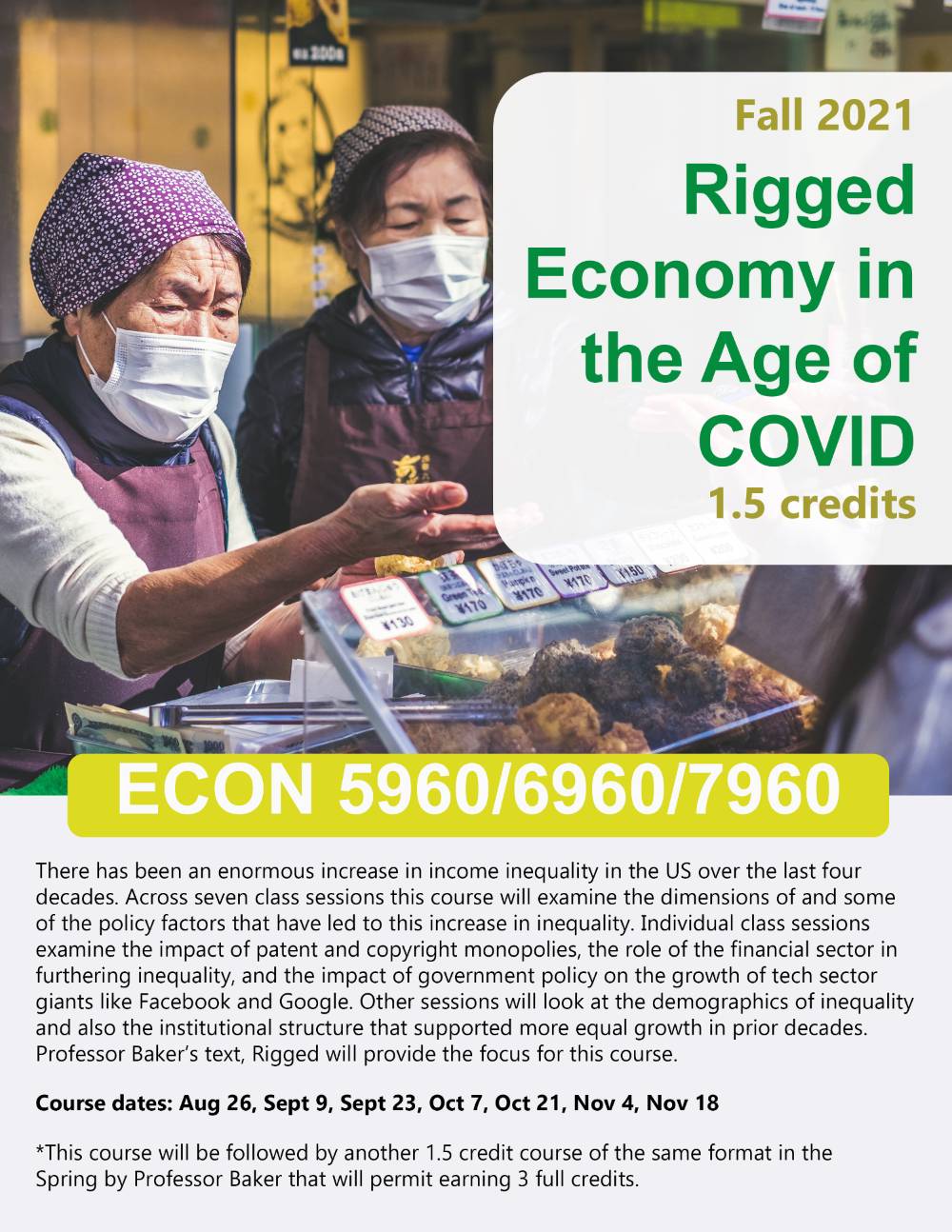
Taught by Professor Dean Baker
There has been an enormous increase in inequality over the last four decades. In some
ways this inequality has been further accentuated by the pandemic recession, although
policies being pursued by the Biden administration may work to reduce inequality.
This course will examine the factors behind the longer term trend, and how the pandemic
has affected these trends. It will first lay out the dimensions of the rise in income
inequality, examining the extent to which the increase is the result of a shift from
wages to profits. It will also compare changes in before-tax and after-tax measures
of income inequality, assessing the extent to which changes in the tax code can explain
the rise in inequality. This discussion will also touch on measures of wealth inequality,
which arguably has increased more than income inequality.
Other sessions will explore specific areas where government policy has promoted inequality.
Three of the areas covered this term will be rules on intellectual property, the regulation
of finance, and the regulation of the tech sector and social media. For example, Facebook
would likely not have reached its current size if the government didn’t grant social
media companies special exemptions from libel law.
Intellectual property, in the form of patent and copyright protections, has been responsible
for many of the largest fortunes created over the last four decades. Bill Gates would
probably still be working for a living if not for copyright and patent monopolies
the government gave to Microsoft. These protections hugely increased demand for specific
skills, notably those associated with the STEM fields. While this has been the point
of these policies – to provide incentive for innovation and creative work – we can
ask whether alternative policies could have led to comparable gains with less inequality.
The financial sector has also been a source of many of the highest incomes over the
last four decades. This is also the result of government policies that have been explicitly
designed to promote the growth of the financial sector. This section will discuss
whether a smaller financial sector, which creates fewer large fortunes, could be equally
effective in serving the needs of the real economy.
Some of the biggest companies in today’s economy, such as Amazon, Facebook, and Google,
did not exist twenty-five years ago. It is possible to envision a tech sector without
such dominant firms, if the government had pursued different regulatory and anti-trust
policies.
One class session will explore the history of institutional and political changes
that enabled the transition between the “Golden Age” of capitalism with broadly shared
economic gains and the current regime of increasing upward redistribution resulting
in large increases in inequality of incomes and wealth. For example, the patent monopolies
the government gave to Pfizer, Moderna, and other coronavirus vaccine manufacturers
allowed them to pocket billions in profits that they would not get otherwise.
The final class session of the fall semester will examine the demographics of income
and wealth inequality and the role of current and historical policy decisions in shaping
the differences associated with age, gender, race, and ethnicity.
*This course is for 1.5 credits. It will be followed by another 1.5 credit course
of the same format in the Spring by Professor Baker that will permit earning 3 full
credits.
|